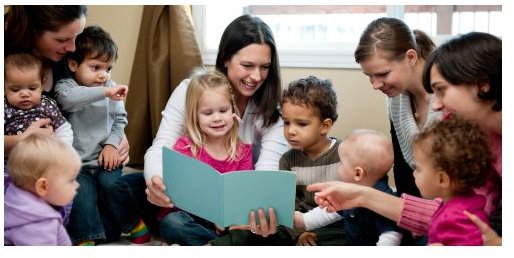The Preschool Debate: Is It Necessary for Kindergarten Success?
The Mommy Wars
As parents, we are judged every day. Breast-feeding or bottle-feeding? Attachment parenting or not? Cloth-diapering or disposables? Stay-at-home Mom or working Mom? It seems as if every time we turn around, there is another argument with only two sides, separating all parents into two easy to distinguish camps. One of the most popular parent discussion points is the question of preschool. Will you send your child to preschool, or keep her at home with you until the first day of Kindergarten?
Whichever arrangement you choose for your family, chances are you will hear unsolicited advice from both camps. While those in favor of preschool will urge you to remember that your child is in dire need of socialization before Kindergarten, those who oppose preschool will urge you to let your kids be kids before sending them off to school.
So who is right? Are three to five year olds in desperate need of skills that can only be honed in a preschool environment before they hit the doors to their neighborhood elementary school? Or, in the grand scheme of things, is it just another one of those mommy talking points that has been elevated to priority status? Just one more thing society has pushed on us as the “right” thing to do; when really it doesn’t make a distinguishable difference in your child’s school performance.
Just the Facts
In order to properly discuss this phenomenon, we have to take a close look history and statistics. In 1960, only ten percent of three and four year olds attended preschool, according to the National Institute for Early Education Research. Compare that to 58% in 1999, and 64% in 2010. Clearly, attending preschool has become a trend recently. The biggest question still remains, is putting your child in preschool really giving him a leg up, or are we forcing children into an academic environment earlier because it’s trendy or because of peer pressure from other parents?
While there are many high quality preschool programs available for children that stress learning through play, positive discipline and fostering friendships, there are also many programs that do not follow these higher standards. Instead, a child’s preschool day is filled with worksheets, quiet time and inappropriate discipline methods. The scariest part about this is that there is sometimes no way to tell which programs will be high quality before enrolling your child. Often, what you see on paper in the form of the school’s policies and procedures aren’t necessarily what you get in the classroom.
Keeping Your Child at Home
The alternative to sending your child to preschool, of course, is to keep her at home with you until it is time for Kindergarten. Michael Smith, the president of the Home School Legal Defense Association, says “Young children are better off at home. We are in danger of over institutionalizing them. A child will develop naturally if the parents give the child what he or she needs most in the formative years – plenty of love and attention. In this way, the brain can develop freely.”
Advocates of keeping preschoolers at home are quick to bring up standardized testing and the No Child Left Behind Act as key reasons for keeping your preschooler away from state-funded or public pre-K programs. Some say the only way for a government to rationalize funding for these programs is through testing, even at the preschool level. And while the tests are vastly different from the fill-in-the-bubble variety currently used in elementary schools as a standard testing method, they are still tests. If you think preschool is still crayons and swing sets, you may be fooling yourself.
Just as in elementary schools, government-funded pre-K programs have certain standards that must be met in order to be considered for more public funding. The preschool curriculum can now include activities and standards for reading, writing, math, science and social studies. It’s not the same preschool you attended as a child.
Standardized testing and public funding has parents running scared, and doing almost anything to give their child an advantage when he gets to elementary school. If this means putting him in a pre-K program that promises the child will be reading before he starts Kindergarten, parents will pay top dollar. If it means tutoring and early intervention therapies for normal preschool behavior, parents will do it.
Instead of providing a loving and comfortable atmosphere for children to grow and learn about the world around them at their own pace, we are forcing children to grow up too quickly. Kindergarten curriculum used to be based on school readiness. Children would learn to sit quietly, find their names on their cubbies, respect others and make friends. Now, Kindergarteners are expected to arrive at school on their first day already well-versed in these simple skills. Kindergarten is for reading, writing and arithmetic; no time for fostering early friendships, learning empathy or practicing social skills.
It’s Up To You
So far, no one can tell you that your child has to attend preschool. While many children yearn for a classroom full of children to play with and a structured curriculum of preschool skills, there are many three and four-year olds that are simply not ready for that kind of environment. They will thrive at home with their parents, in a comfortable environment they can explore, manipulate and enjoy without the stress of a full school day. Luckily, it is still a parent’s choice whether to enroll their child in a preschool program or not. Be sure to choose wisely, and remember that this is your child. No trends or parent peer pressure should sway you in a way that you know would not serve your child well.
References
- The National Institute for Early Educaton Research http://nieer.org/resources/facts/index.php?FastFactID=7
- Edutopia: The Preschool Debate Intensifies http://www.edutopia.org/preschool-early-childhood-education
- Opinion provided from a parent and former pre-kindergarten teacher’s perspective.
- The Home School Legal Defense Association http://www.hslda.org/
